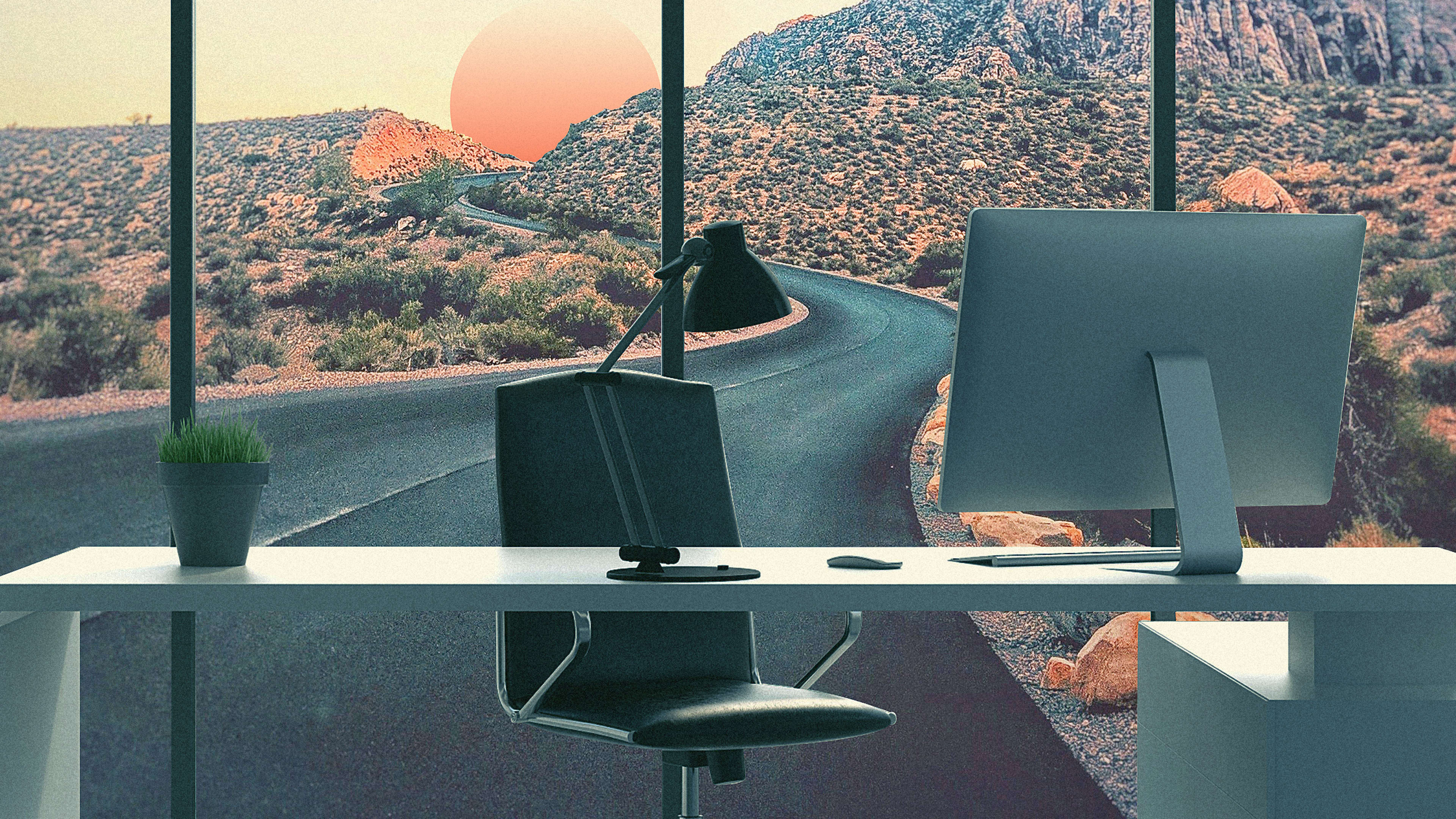Scott Wilson founded his Chicago design firm Minimal 14 years ago, after leading design at big companies like Nike and Motorola. When you first meet him, you know how he’s done it: He’s the epitome of energetic. He thinks fast. He speaks fast. He’s the type of person who somehow gets just a few hours of sleep each night, but manages to walk into the office each day with a pep in his step.
Wilson knows this is weird. And when COVID hit last year, he recognized something even more strange: “I’ve had renewable energy for my whole career. Even after my hardest day, I bounce back,” he says. “But I was feeling fatigued.”
If Wilson was worn down by the COVID world, he knew that his team could only be feeling it worse. So last summer, he instituted a new policy at Minimal: a four-day week for the season, with Fridays off.
“The thinking was around emotional and mental wellness,” explains Wilson, but he had practical reasons for the three-day weekends, too. In Chicago, winters are long, and summers are short. There’s not a lot of time to get out and explore, especially with COVID travel restrictions. “When you can’t travel via plane, two days is tough to drive to places and really unplug.” But if people had three days? Suddenly, spending eight hours in a car over the weekend wasn’t so illogical.
The four-day workweek isn’t a new idea, of course. And there’s plenty of research that extols its benefits: people are no less productive over four days than five (but a lot less stressed), and the environmental savings of closing down an office for an extra day a week is significant. Even still, paying people the same amount of money to spend fewer hours on the job is a frightening prospect for many companies.
For Wilson, the decision came with real risk. He’d always imagined running a studio that took August off, in the European tradition. The reality, however, is that his design consultancy has only 20 employees, each of whom is essential to keeping his company afloat. To lose just a couple of projects could be disastrous for his balance sheet, as it can be for any small firm. “We’re a small business that can’t absorb the inefficiencies that big corporations can. For 14 years, we’ve had a weird knack for closing just enough business every year so we’re above the line. That’s the nature of the thing,” says Wilson. “So I was worried. We miss a couple jobs, and we’re not going to make it.”
As it turned out, Wilson’s worries were unfounded. 2020 was almost Minimal’s best year in the company’s history. A slow fall derailed that outcome, but Wilson doesn’t attribute that to productivity loss. “Everybody is working super hard,” says Wilson. “The focused work, the detailed work, the final work product was as good or better than I’d seen prior.” (As such, Wilson has mulled making four-day workweeks a year-long initiative, but he also believes it’s less painful to hunker down in winter than when it’s sunny out.)
But how do employees finish their work with one less day a week? It didn’t require any major change to management or workflows. Instead, employees are self-regulating organically. Wilson sees people are stacking more work onto their Monday through Thursdays, which he readily admits have never operated within the comfortable confines of a standard 9-5 job. To him, this beats the alternative of what he’d seen before when he tried summer Fridays, where the office closed at noon. People would inevitably not leave on time, wrapping up projects in the 2 p.m. to 3 p.m. hour. Ultimately, they’d beat rush hour traffic home, but they didn’t get a tangibly longer weekend for their efforts.
Now, Slack messages and emails go dead on Friday, proving that employees are taking more time for themselves. A challenge has been scheduling client meetings to keep those Fridays free, and Wilson (who himself still tends to work Fridays), admits it’s an ongoing struggle. However, it’s a struggle that he feels is worth the payoff.
“Three-day weekends are awesome!” he says. “You feel like that one extra day recharges you a little bit more. It’s like going on vacation . . . you need two weeks, not one week, to really unplug.”
Recognize your brand’s excellence by applying to this year’s Brands That Matter Awards before the early-rate deadline, May 3.
